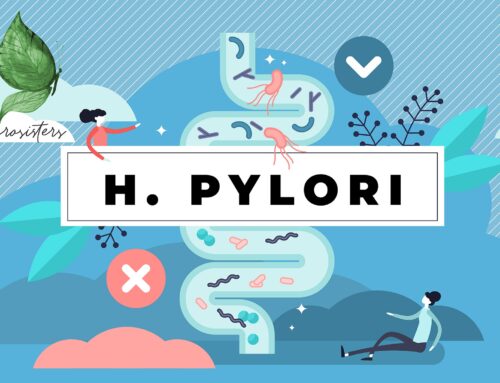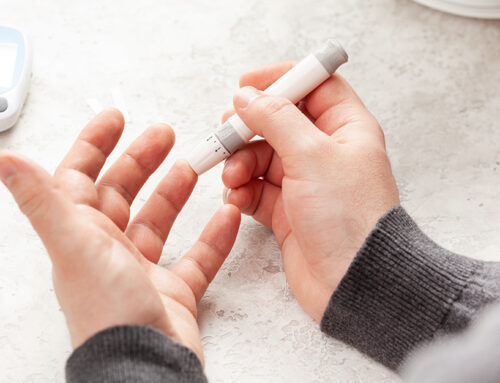
For the person with autoimmune hypothyroidism, a detox diet that removes inflammatory foods can significantly alleviate thyroid symptoms.
Hashimoto’s hypothyroidism is a condition in which the immune system attacks and destroys the thyroid gland, and accounts for 90% of hypothyroidism cases in the United States. Hashimoto’s is linked with leaky gut and gut inflammation, conditions that perpetuate thyroid symptoms. The more severe the Hashimoto’s hypothyroidism, the more severe the gut issues, and vice versa.
A good detox diet halts this vicious cycle by calming inflammation, stimulating repair and recovery, and boosting energy. A detox diet should never involve frequent hunger or lack of nutrients, factors that only stress the body further.
Hypothyroidism and gluten
Many people don’t realize they have food intolerances. These foods trigger an immune reaction and cause such symptoms as low energy, rashes, joint pain, digestive issues, headaches, anxiety, depression, and more. They also prevent weight loss. The foods people most commonly react to are gluten, grains, dairy, eggs, and nuts.
Many studies have established a link between Hashimoto’s and gluten intolerance, making gluten strictly off limits if you want to improve thyroid symptoms.
Other inflammation triggers
Other common immune triggers include nightshades (potatoes, tomatoes, peppers, etc.), legumes, coffee, and, of course, foods high in sugar. Don’t forget, sugary foods include sweet fruits and natural sweeteners, such as honey, maple syrup, and agave.
The hunger-free diet plan
At this point you might be saying, “There is nothing left to eat!” On the contrary, the detox diet resembles what our ancestors ate prior to the industrialization of food, and there is plenty to eat. In fact, it is important not to get too hungry as the low blood sugar caused by chronic hunger causes inflammation. Eat frequently enough to sustain energy and avoid crashing.
Healthy diet plan foods
Grass-fed and organic meats, wild fish, plenty of vegetables, healthy fats, and fermented foods, such as sauerkraut, make up the detox diet, along with plenty of water and non-caffeinated herbal teas.
Good fats are key to success
An appropriate amount of good fats ward off hunger and sustain energy. Include healthy fats such as coconut oil, avocado, olive oil, ghee (butter oil), and salmon. Avoid processed vegetable oils and strictly avoid hydrogenated oils, or trans fats.
Rewards outweigh difficulties
Yes, the diet is difficult at first. It requires planning and preparation. Initially you may experience sugar and carb cravings, low energy as your body adapts to burning fat instead of sugar for fuel, and such detox symptoms as headaches, rashes, or joint pain. Please contact our office for guidance if so.
However people who stick with the diet inevitably feel such a boost in energy and well being, and such a reduction in thyroid symptoms, that they come to enjoy the diet.
A great weight-loss diet plan
Many find the detox diet is also a great weight loss diet yet. Cutting out sweets and high-carb foods naturally promotes weight loss. More importantly, the detox diet becomes a weight loss diet plan by reducing inflammation, stabilizing blood sugar, and restoring balance to the adrenals, our stress-managing glands.
These factors help restore gut health and tame the autoimmune condition so that the thyroid can function more normally. This makes weight loss possible for the thyroid patient who has long struggled with weight gain.
Reintroducing foods
After 30 to 90 days of the detox diet, you may wish to add in some of the foods you eliminated, one at a time every 72 hours to see whether you react in any way to them. This will help you build a healthier lifelong diet. However, it’s important for the individual with Hashimoto’s to strictly and permanently avoid gluten.
Support with detox supplements
I can help you enhance the effects of the detox diet with nutritional compounds to aid in cleansing and ease the symptoms of transition. They support the liver, the digestive tract, blood sugar balance, and stress handling. Just call my office for advice.
Detox diet plan
Foods to avoid
- ALL sugars and sweeteners, including honey, agave, maple syrup, etc.
- High-glycemic fruits: Watermelon, mango, pineapple, raisins, grapes, canned fruits, dried fruits, etc.
- Nightshades: Tomatoes, potatoes, peppers, eggplant, and other nightshades
- Mushrooms
- Grains: Wheat, oats, rice, barley, buckwheat, corn, quinoa, etc.
- Dairy: Milk, cream, cheese, butter, whey.
- Eggs or foods that contain eggs (mayonnaise)
- Soy: Soy milk, soy sauce, tofu, tempeh, etc.
- Alcohol
- Lectins: Lectins promote leaky gut. Avoid nuts, beans, soy, nightshades, peanut oil, peanut butter, and soy and soy products.
- Coffee: Many people react to coffee as if it is gluten, and it can be overstimulating.
- Processed foods
- Canned foods
Foods to eat
- Most vegetables (except nightshades and mushrooms): Asparagus, spinach, lettuce, broccoli, beets, cauliflower, carrots, celery, artichokes, garlic, onions, zucchini, squash, rhubarb, cucumbers, turnips, watercress, etc.
- Fermented foods: Sauerkraut, kimchi, pickled ginger, fermented cucumbers, coconut yogurt, kombucha, etc. You must make your own or buy one of the few brands that are genuinely fermented (not made with vinegar) and free of sugars or additives.
- Meats: Grass-fed and organic chicken, turkey, beef, bison, lamb, etc., and wild fish.
- Low glycemic fruits sparingly: Apricots, plums, apple, peach, pear, cherries, berries, etc.
- Coconut: Coconut oil, coconut butter, coconut milk, coconut cream.
- Olives and olive oil
- Ghee (butter oil) unless severe dairy allergy
Contact our team to learn more and craft a diet specific to your needs.





